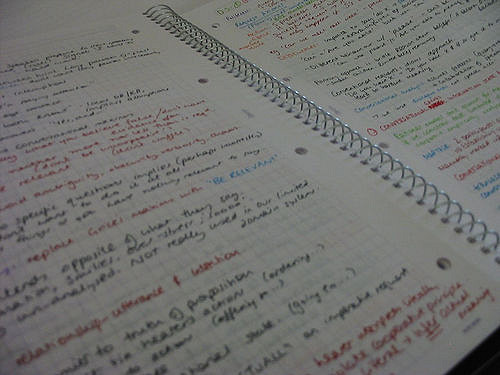The sun has started to make an appearance in the last few weeks and for many this will induce a certain amount of trepidation as every student knows that summer means exams. At this stage in your academic career you probably have a fairly set routine for revision; maybe you’re enviably organised and already have a colour-coded revision timetable, maybe you adopt a caffeine addiction and a nocturnal persona. I prioritise sleep as apparently its good for memory and I always sleep next to my revision notes – this bit has no scientific basis aside from my own superstition.
A significant improvement in memory was seen in the group trained in the method of loci but not the other two groups.
Should your current revision technique be failing you or perhaps, you fancy retaining some sanity over the upcoming exam period, you may be interested to hear of a study that transformed people with average memories into memory champions in just six weeks.
At the start of the study novices and memory experts attempted to recall a list of 72 words, 20 minutes after seeing it for the first time. The memory experts thrashed the novices with a recall average of 70.8 words compared to the novices’ measly 39.9.
Following this humiliating defeat the novices were separated into 3 groups: one group was trained in the method of loci, the other received short term memory training, which required them to keep track of locations and numbers. The third group was a control and received no training.
A significant improvement in memory was seen in the group trained in the method of loci but not the other two groups. In fact their performance on the word recall test was similar to that of the memory experts, with an average of 63 words being recalled. This improvement in memory was maintained at the 4-month follow up.
So what exactly is this magical method of loci? Also known as the ‘mind palace technique’, it was used by Greek and Roman orators to help them remember their speeches. The method requires the association of things to be remembered with locations, either in an intricate imaginary palace or a familiar location such as your house or a walk you regularly take. When a person using the technique wants to recall a fact they walk around their mind palace until they reach the location of the memory bite.
What makes this study particularly interesting is that participants were tested on their word recall whilst in an fMRI scanner, allowing the researchers to investigate what was going on ‘behind the scenes’. They found that training in the method of loci caused changes in brain connectivity and these changes made novices brains appear more similar to the brains of memory experts – the major change in connectivity being between two regions in the prefrontal cortex, the region at the front of the brain involved in complex cognitive actions.
We can all have a go at shaping our brains into a model that’s better for fact recall.
This means that memory champions don’t necessarily have an innate gift for remembering things and that we can all have a go at shaping our brains into a model that’s better for fact recall. However Boris Konrad, co-author of the study does warn that not everyone can master the method of loci well enough to become a memory champion “but everyone using the technique can improve quite substantially from the level they’re at”. So for this exam period maybe consider ditching the flashcards and the caffeine tablets and start constructing a mind palace.
IMAGE: Flickr





